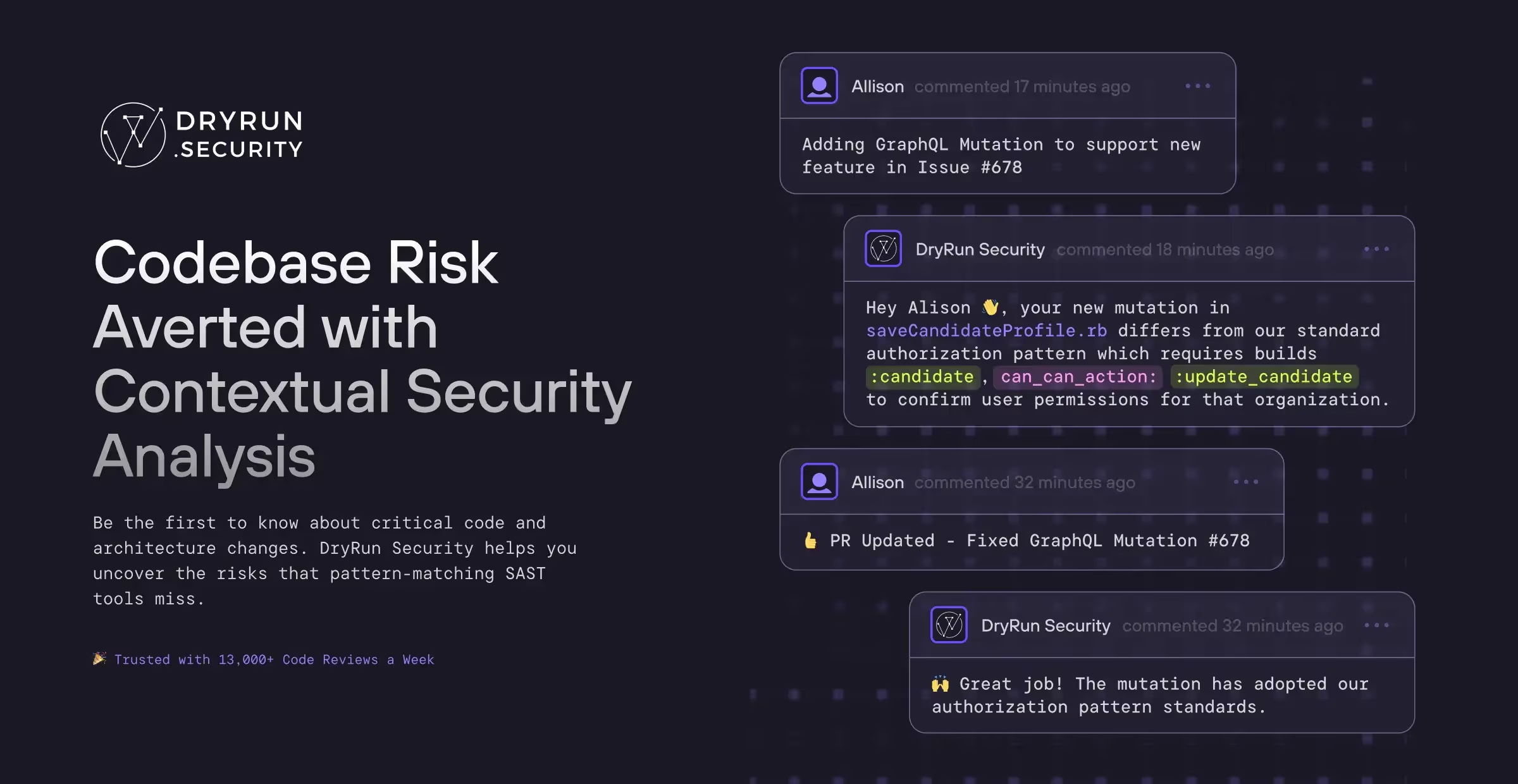
DryRun Security envisions a future where software security is seamlessly integrated into every stage of development, empowering teams to deliver secure code without compromise. We are dedicated to transforming how application security is perceived and practiced by embedding intelligent, context-aware analysis directly into developer workflows, ensuring risks are identified and addressed instantly.
At the heart of our innovation is AI-driven Contextual Security Analysis, which comprehends the nuances of code behavior far beyond traditional methods. This empowers development teams to navigate complexity with confidence, eliminating friction and enabling faster, safer software releases. Our pioneering Natural Language Code Policies revolutionize policy enforcement, making it accessible and efficient for security teams to define and maintain robust safeguards.
Driven by our commitment to enhancing software integrity, we are building a future where security is a fundamental enabler of innovation, protecting organizations and their customers through cutting-edge AI technology and human-centric design. DryRun Security is not just safeguarding code—it is forging the foundation for the next generation of resilient software ecosystems.
Our Review
Why We're Excited About This Approach
When we first heard about DryRun Security, we'll admit we were a bit skeptical. Another AI-powered security tool? But after digging into what founders James Wickett and Ken Johnson built, we get it. This isn't just slapping AI onto existing security scanning — it's rethinking how developers actually work with security feedback.
The company's Contextual Security Analysis technology caught our attention because it goes beyond the usual pattern-matching approach. Instead of flooding developers with false positives, it understands what the code is actually trying to do. That's a game-changer when you're dealing with complex logic flaws and authorization issues that traditional tools miss.
The Natural Language Twist
Here's where things get interesting: DryRun lets security teams write policies in plain English. No more wrestling with complex rule syntax or maintaining brittle scripts. Want to enforce a specific authentication pattern? Just write it out like you're explaining it to a colleague.
We've seen firsthand how much time AppSec teams waste translating security requirements into tool-specific languages. This Natural Language Code Policies feature feels like it could eliminate a lot of that friction.
Built by People Who Get It
What gives us confidence is the founding team's background. Wickett and Johnson aren't newcomers trying to crack the security market — they're AppSec veterans who've lived through the pain points they're solving. When industry experts raise $8.7 million and land customers like Gusto and BrightHR within their first couple years, that tells us something.
The BlackHat Startup Spotlight 2024 finalist recognition doesn't hurt either. That's not an easy competition to stand out in.
Who Should Pay Attention
DryRun seems purpose-built for teams that are already doing DevOps well but struggling with security integration. If you're running thousands of code reviews weekly and drowning in security tool noise, this could be worth a serious look. The 15,000+ weekly code reviews they're already processing suggest they've found product-market fit with development teams that value speed and accuracy.
For smaller teams or those just starting their DevSecOps journey, the learning curve might be worth it — especially if you want to build security habits early rather than bolt them on later.
Feature
Contextual Security Analysis (CSA) for detecting complex code risks
Natural Language Code Policies (NLCP) for plain language security policy definitions
Real-time security feedback inside code pull requests
Reduces false positives and streamlines compliance
Supports real-time visibility into thousands of daily code changes








